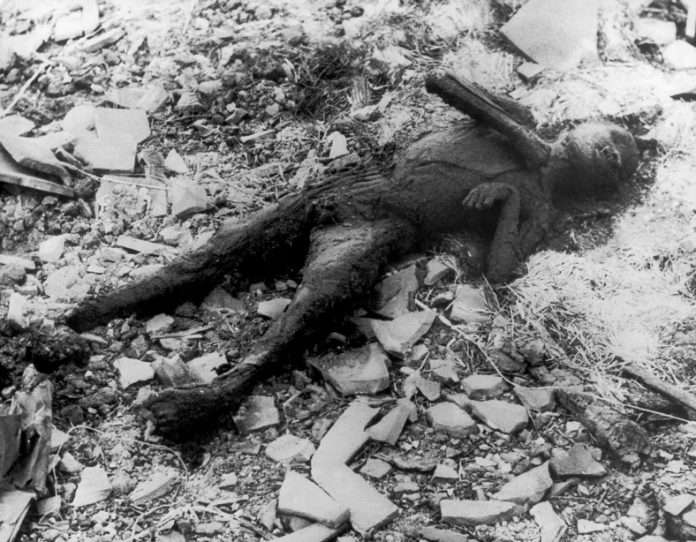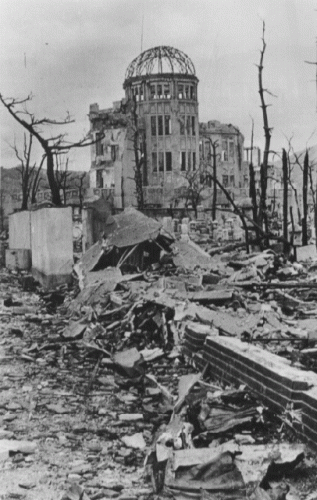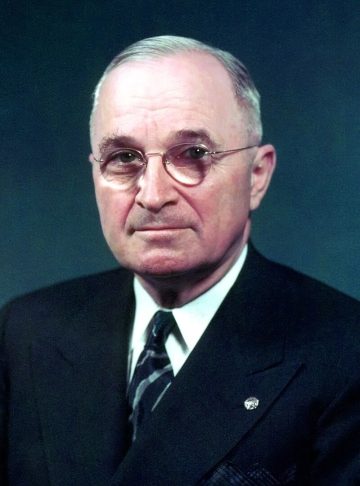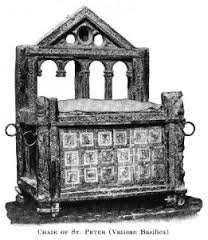
On October 11, 1649, the troops of Oliver Cromwell, who was then ‘Lord Protector of England’, stormed the besieged village of Wexford, Ireland. The soldiers killed indiscriminately, leaving 1600 dead. This was par for the course for Cromwell – not the first nor the last of his massacres, which he justified to ‘quell future resistance’. After all, to his mind, they were superstitious Irish Catholics, and, according to the predestination of his Calvinist creed, damned by God regardless, and it was part of the Almighty’s decree that they be ruled by England, or suffer the consequences.

wikipedia.org/public domain
Cromwell’s actions, for all their Christian veneer, were in fact a recrudescence of paganism, for such ‘total war’ was par for the course before Christ. For the ancient pagans, human life had no inherent value, only a relative one, depending on one’s status, with the gods, or in the state.
This all changed with Christian revelation, which holds that each human being is made in the image of God, called to share in His divine nature. No longer were we indiscriminate ‘individuals’, but human persons, much as God is a Person, or, rather, Three Persons in One God. Hence, each human person has an inherent and inviolable dignity, that far transcends the material world and whatever the apparent ‘value’ he has within that world. Every life is worth living, and no one has a right to take that life.
The only exception is self-defense, when an attacker can be neutralized with proportionate harm, even to the point of death, if need be. From this principle, the Church, in her Tradition, developed the teachings of just war and capital punishment, all of which continue to be modified in accord with this ever-changing world.
But the Church has always held that innocents – and civilians in general – may not be deliberately targeted in war, which is why in the Middle Ages, in what we may nostalgically call Christendom, wars were waged with strict rules of conduct, much like chess matches, only a lot more real and bloody. Your army went against the other army and they had it out, until one side had had enough, victory was declared, and terms agreed upon.
This never worked perfectly, and there were always deviations – the sack of Rome in 1527 a case in point – but in general – pardon the pun – soldiers were soldiers, and civilians, civilians, not least women and children.
This changed with the breakup of Catholic unity that we call the ‘Reformation’, when many of the perennial teachings of the Church were rejected, not least the notion of ‘innocent life’. The Thirty Years War may be described as the first modern total war, targeting entire populations in slash and burn operations across Germany.
But some vestige of Catholic truth still remained, and it is to that we must cling, like castaways grabbing a plank in a stormy ocean. One of these is that we must not kill the innocent, for that way lies barbarism, and the very dissolution of our society, with a blood-dimmed tide in its wake.
Here is George Weigel in a recent article:
In early July, Vladimir Putin toured an Orthodox church in St. Petersburg, piously crossed himself, and lit a candle. Hours before, Russian missiles had attacked the Ukrainian port city of Odessa, demolishing the roof of the historic Orthodox Transfiguration Cathedral, setting the building afire and melting some of its gold icons. The dwindling numbers of imbeciles who regard Putin as the savior of Christian civilization might ponder that juxtaposition of events.
Of course we shouldn’t think Putin, nor any other earthly potentate, the ‘savior of Christian civilization’ – only Christ is that, and only He can restore whatever’s left of the tattered rags of our civilization. And we should be against the bombing of civilian targets, not least sacred ones.
But wait a minute. This is the same Mr. Weigel who has earlier justified the nuclear attacks on the cities of Hiroshima and Nagasaki, claiming that Truman made the ‘correct choice’ in ordering the dropping of the two bombs, which destroyed not just one church, but every church and building in the two cities, killing tens of thousands instantly, almost all of them civilians, including women, children, the sick, the elderly, Catholics and Buddhists alike. And this does not include all the lingering deaths from radiation burns and poisoning, along with the genetic deformations in subsequent generations.[1]

wikipedia.org/public domain
Truman himself was adamant he did the right thing, at least publicly, and scorned Robert Oppenheimer when the scientist admitted to the president that he was racked with guilt for spearheading the invention of the ‘bomb’, confessing that he felt he had ‘blood on his hands’. Accounts differ on their actual conversation, but the gist is that the Truman retorted:
Blood on his hands; damn it, he hasn’t half as much blood on his hands as I have. You just don’t go around bellyaching about it.

wikipedia.org/public domain
Truman purportedly called Oppenheimer a ‘cry-baby scientist‘, and, tellingly, said he never wanted to see the ‘son of a b- in his office again‘.
What this might tell about the president’s actual, deep-down conscience, I will leave to God. I don’t think Truman, as a Presbyterian, ‘crossed himself and lit a candle’ after his fateful decision, but perhaps he said a prayer, and I hope he was somehow able to reconcile his conscience with his Creator before meeting Him.
I wrote against Mr. Weigel’s gravely flawed reasoning at the time, and the reader may feel free to peruse that, which I won’t rehearse in toto here. But you may be intrigued by Elizabeth Anscombe’s more in-depth, and quite frankly irrefutable, critique of Truman’s decision, which is prophetic for what we are now facing, half a century on. As she put it, in her own pithy way:
For men to choose to kill the innocent as a means to their ends is always murder, and murder is one of the worst of human actions.
Sure enough, there were before Hiroshima the previous conventional firebombings – which is to say, non-nuclear, but still devastating – of Dresden, Tokyo and other cities, which were in turn preceded by the Germans air assault on London. But the nuclear inferno was worse, as Anscombe continues:
In the bombing of these cities it was certainly decided to kill the innocent as a means to an end. And a very large number of them, all at once, without warning, without the interstices of escape or the chance to take shelter, which existed even in the ‘area bombings’ of the German cities.
And ‘taking shelter’ would not have provided much help, anyway.
The Allies claimed they had to respond in kind to the Axis. But one cannot return evil for evil, and ‘an eye for an eye and tooth for a tooth’ is not Christian doctrine nor praxis.
There are three criteria for discerning moral actions: Object, intention and circumstances – the kind of act that it is, why one is doing the act, and all those things surrounding the act that make it better or worse. As Pope John Paul II points out in Veritatis Splendor, the first of these requirements is the object, for there are some kinds of actions – intrinsic evils – that may never be done, prohibited semper et ubique, regardless of the goodness of one’s motives, nor the circumstances, no matter how dire. One of these ‘intrinsic evils’ is murder, or the killing of innocents.
Mr. Weigel implies that America in 1945 had both a good motive and straitened circumstances: to bring to an end what seemed an endless war, and to prevent the countless military and civilian casualties in a ground assault on Japan (which may not have been necessary, given their desperation). Yet, that is not the essential point, for one cannot murder one innocent person, never mind a hundred thousand, to save the world. For that matter, one cannot commit any moral evil, for such is incommensurate, as the Catechism puts it, with any good outcome. Objective and intrinsic evil is just that, which no nobility of intention or dire circumstances may justify. To the innocent victims, the end point is the same – unjust death – whether in Hiroshima’s hellfire or a hail of Hamas bullets.
Of course, anything evil may be made more evil by added evils – the recent attacks by Hamas, from what reports we have, involved the added outrages of rape, mutilation, kidnapping. But even if the terrorists had dispatched their victims gently with nitrous oxide laughing gas, their act would still be an evil, and a grave one at that.
To target civilians – women, children, the unborn – even if they are considered ‘collateral damage’ – innocents who just happened to be in harm’s way to getting to the real targets – is akin to saying that restaurant-goers were simply ‘in the path’ of the bullets of an assault rifle fired through an opaque plate glass window, knowing there were innocent patrons behind.
We are facing a grave crisis in the world, beyond Hiroshima and Hamas, inchoately foreseen by the Fathers of the Second Vatican Council:
Any act of war aimed indiscriminately at the destruction of entire cities of extensive areas along with their population is a crime against God and man himself. It merits unequivocal and unhesitating condemnation.
We don’t need the Magisterium to tell us this, which is an obvious and necessary conclusion from divine and natural law. Even the secular League of Nations unanimously outlawed the ‘intentional bombings of civilian populations’ in 1938 – and a fat lot of good that did, as the reciprocal bombs dropped into cities grew ever-bigger, until civilians became the primary targets in a war that may not end all wars.
The immoral logic of Hiroshima and Hamas is a descent to the pagan notion of total war, and, with modern weaponry, a possible worldwide conflagration involving the mass annihilation, this time not of two hundred thousand, but of two hundred million, or more. In 1945 there were two nuclear bombs in the world. Now there are untold thousands, most of them of the thermonuclear sort, hydrogen bombs which are hundreds, or thousands of times more powerful than those original two.
I’m not sure what Catholics, even priests, are thinking when they justify Hiroshima, often with obfuscatory, a posteriori reasoning. But cutting through the Gordian knot of the loquacious justifications is really quite simple: We cannot do evil that good may come of it – and by that we mean moral evil, regardless of how much good is attained or evil avoided. If one permits wholesale killing, then the inherent and inviolable dignity of the human person is lost, and gone forever.
The destruction of innocent life is a moral tragedy that should never be repeated, in any way, for any reason, regardless of how desperate the cause – from Hamburg, to Hiroshima to Hamas.
We will leave the final word to Dr. Anscombe, who protested Oxford’s bestowal of an honorary degree on Truman “because one can share in the guilt of a bad action by praise and flattery, as also by defending it“.
That applies to all of us.
[1] And, we may add, amongst those condemning the reported murder of babies by Hamas are those who support abortion right to the point of birth, with methods not much different from the terrorists. Both are abhorrent.











